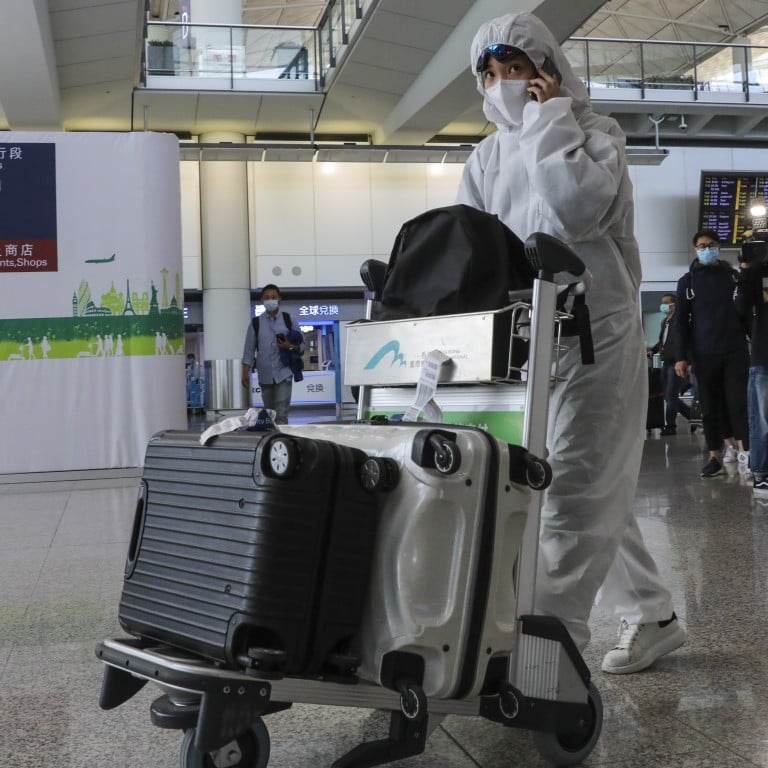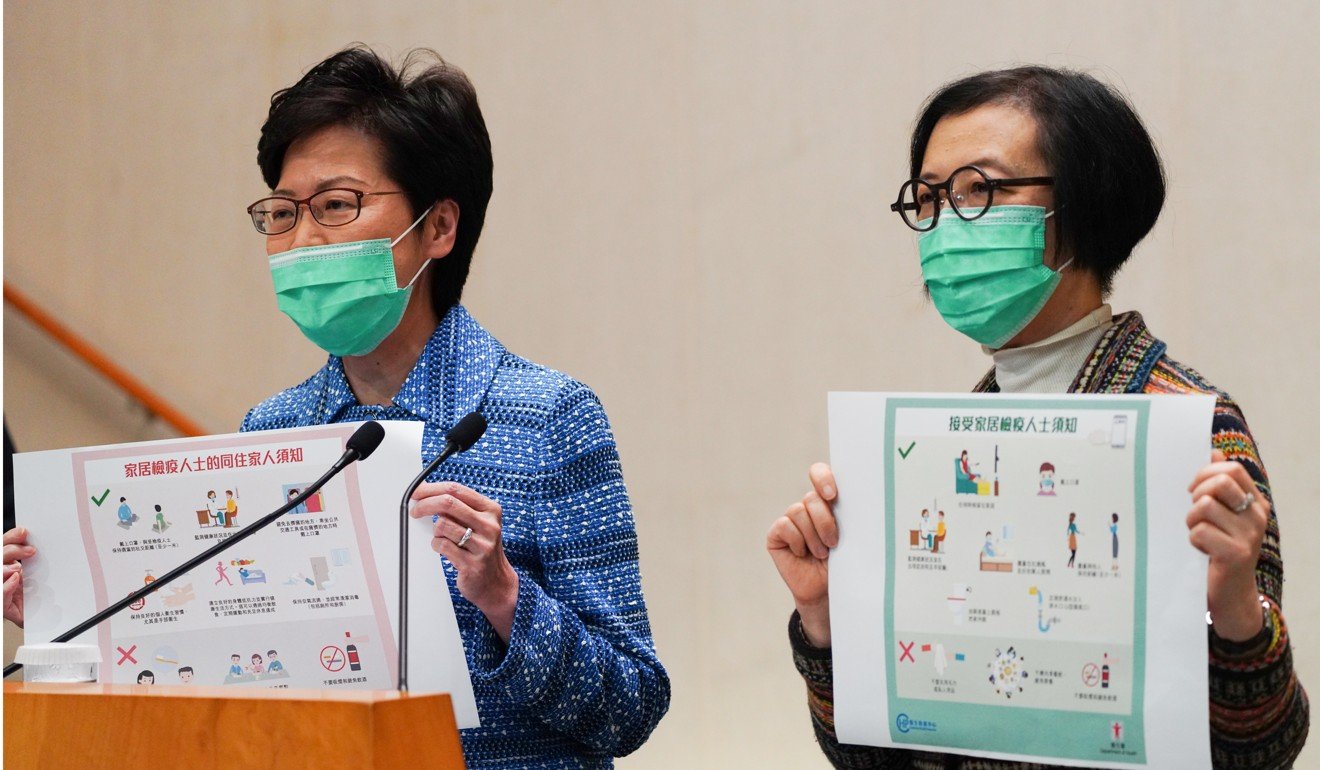
Coronavirus: Hong Kong toughens travel restrictions on all arrivals from foreign countries amid concerns about wave of imported cases swamping public health system
- City leader Carrie Lam expands red travel alert to cover all countries and jurisdictions except for neighbouring Macau, Taiwan and mainland China
- 10 new Covid-19 cases confirmed in city, taking total to 167, and at least eight of the new patients had travelled overseas recently
The city confirmed 10 new Covid-19 cases that took its total to 167. At least eight of the new patients had travelled overseas recently, and four had only just returned home a day earlier, two of them students escaping from Britain, where the situation looked grim.
With the number of Covid-19 cases and deaths across the world continuing to surge above mainland China’s total, Chief Executive Carrie Lam Cheng Yuet-ngor expanded a red travel alert to cover all countries and jurisdictions except for neighbouring Macau, Taiwan and mainland China.
Starting from Thursday, anyone arriving from overseas would have to undergo home quarantine for 14 days and be subject to another two weeks of medical surveillance.
Arrivals from the mainland – which reported 21 new cases, all imported except for one at ground zero in Wuhan – are already required to self-isolate at home.
But the tighter restrictions have also raised worrying questions about whether the city’s health care system and manpower could cope with the expected surge of people who would have to be monitored under home quarantine, and whether limited isolation facilities would be overwhelmed.
“If we do not impose tougher measures at this stage, our previous efforts to prevent the disease from spreading throughout these two months could be completely wasted,” Lam said.
Hong Kong travel agencies pull plug on international tour groups
“If all these imported cases lead to a community outbreak, the consequence will be unimaginable and increase the burden on the public health system.”
The city’s leader said the decision was made after top officials consulted infectious disease experts, who concluded the focus should shift to shutting out imported cases.
More than 20 people returning from overseas on Monday night, many of them students, were sent directly from the airport to nine different hospitals, showing fever symptoms. Three were confirmed to be infected the next day.
Considering the second wave of imported infections, Lam also declared it would be “quite impossible” for schools to resume full classes on April 20.
People with blood type A may be more vulnerable to coronavirus: study
She would not commit to a time frame for schools to reopen, saying, “This will be a prolonged battle. Residents need to be psychologically prepared that it will be hard for us to completely control the outbreak within a short time.”
Lam said she would not go as far as Macau, which is barring entry to all non-residents except those from mainland China, Hong Kong and Taiwan from Wednesday, while mandatory 14-day home quarantine for its own citizens remains effective.
“While we are still in a pandemic situation, we have to allow the city to continue, business to resume, otherwise we may have more problems on the economic front,” she said.

The chief executive also justified waiting until Thursday for the new measures to come into force as necessary to give everyone due notice.
Chinese University respiratory medicine expert Professor David Hui Shu-cheong said Hong Kong was effectively closing its borders through administrative means, and expected foreign-arrival numbers to drop.
“I don’t think anyone will have the incentive to come to Hong Kong if you know that, on arrival, you will be quarantined for 14 days. This will cut down the number of people coming to Hong Kong,” he said.
‘Scared’ in London as UK coronavirus spread accelerates
But the surge of returnees, especially students escaping lockdowns in other countries, has raised the prospect of a severe burden on the city’s health care system.
Dr Chuang Shuk-kwan of the Centre for Health Protection acknowledged it would “indeed put a stress on the manpower issue”, while students quarantined at home could expose their family members to the disease.
“It’s hard to arrange overseas students to live at quarantine centres because the number will be very large, unless we can find a proper place … this is indeed a challenge for Hong Kong,” she said, even suggesting family members should consider shifting to hotels or moving in with their relatives while leaving students quarantined at home.
Dr Linda Yu Wai-ling, a chief manager of the Hospital Authority, said the usage rate of isolation wards in public hospitals was 65.7 per cent, and 40.1 per cent of the 954 isolation beds were occupied.
She was worried about the added strain on resources with more people returning to the city who might require isolation.
Around 20,000 people are currently under home quarantine. Their movements are being monitored by about 260 people, two-thirds of whom are civil servants.
Some 50 other volunteers are involved in delivering meals, with the Social Welfare Department coordinating, while officers from disciplined services conduct spot checks to ensure compliance.



